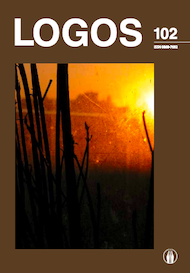The Epistemic Function of the Forms of Intuition in Immanuel Kant’s Critique of Pure Reason
The Epistemic Function of the Forms of Intuition in Immanuel Kant’s Critique of Pure Reason
Author(s): Aivaras StepukonisSubject(s): Epistemology, 19th Century Philosophy, German Idealism
Published by: Visuomeninė organizacija »LOGOS«
Keywords: Immanuel Kant; epistemology; sensuality; experience; knowledge;
Summary/Abstract: The article constitutes a detailed exposition of the epistemic role Immanuel Kant assigns to the forms of intuition in his magnum opus Critique of Pure Reason. Special attention is directed to the notions of sensibility, intuition, experience, and knowledge. At the center of the investigations into the forms of intuition is Kant’s epistemological turn from realism to transcendentalism: the subject comes to experience the object by constituting it, not by correspond to it. The article closes with a few critical observations regarding the concept of ‘thing in itself,’ the limitation of external reality to the sensible and material realms, and the analytic obscurity of ‘given’ and ‘represented,’ two central concepts which are often used in the passive voice without specifying their agents.
Journal: LOGOS - A Journal of Religion, Philosophy, Comparative Cultural Studies and Art
- Issue Year: 2020
- Issue No: 102
- Page Range: 29-35
- Page Count: 7
- Language: English

